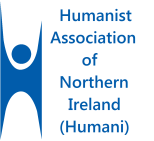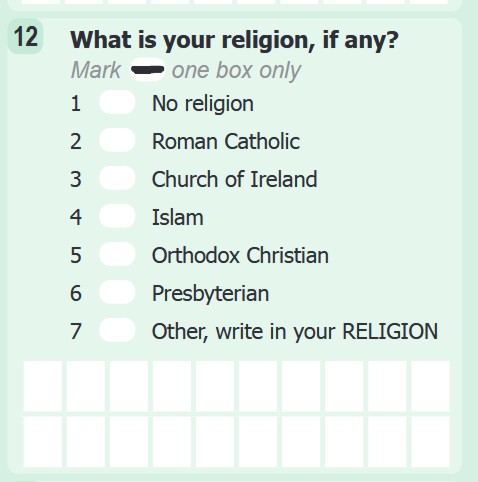The Dáil and Senate have on 23 January 2024 passed 2 Bills for 2 Referenda to make 2 changes to Article 41 of the Constitution of Ireland.
Voting Day for the 2 Referenda will be Friday 08 March 2024.
Each voter will receive 2 Ballot Papers, one for each Amendment/ Referendum.
To help people to decide how they will vote, the Mid-West Humanists will hold an Open Meeting on Tuesday 20 February 2024.
One Referendum, for Amendment no 40, will remove Article 41.2, if a majority of the people vote Yes. Part of this Amendment will thus remove reference to a mother’s … duties in the home.
Some voters are concerned that this duty will then be entirely absent from the Constitution.
This is probably not true: the duty exists in some other Articles of the Constitution.
To help with people’s decisions, we show here the text of Articles 42 and 42A. These will remain the same after one Referendum or both is/ are passed by the people.
We show here how Article 42 (Education) and Article 42A (Children) say that the State respects the duty of parents to provide for the education of their children (42), and respects the duty of parents, generally (42A).
We here emphasise in blue the words that show these duties.
The duty of parents in Article 42 is that they provide for the education of their children. They may do this by sending their children to a school, but the parents still do other education generally at home, that does not happen in schools.
The duty of parents in Article 42A is not specified; but in section 2 of Article 42A their failure to do that duty may involve the State supplying the place of the parents. This permits the law that a Court (a Judge) can take a child, whom the parents have so failed, away from those parents.
Thus the duty of parents in section 2 of Article 42A is to give all the care and support that is normal for parents to give. This is wider than a mother’s … duties in the home. It includes the same duty of fathers, and the duty of both parents when the child(ren) are neither at home or at school.
ARTICLE 42 Education
1 The State acknowledges that the primary and natural educator of the child is the Family and guarantees to respect the inalienable right and duty of parents to provide, according to their means, for the religious and moral, intellectual, physical and social education of their children.
2 Parents shall be free to provide this education in their homes or in private schools or in schools recognised or established by the State.
3 1° The State shall not oblige parents in violation of their conscience and lawful preference to send their children to schools established by the State, or to any particular type of school designated by the State.
2° The State shall, however, as guardian of the common good, require in view of actual conditions that the children receive a certain minimum education, moral, intellectual and social.
4 The State shall provide for free primary education and shall endeavour to supplement and give reasonable aid to private and corporate educational initiative, and, when the public good requires it, provide other educational facilities or institutions with due regard, however, for the rights of parents, especially in the matter of religious and moral formation.
ARTICLE 42A Children (inserted by a Referendum in 2012)
1 The State recognises and affirms the natural and imprescriptible rights of all children and shall, as far as practicable, by its laws respect and vindicate those rights.
2 1° In exceptional cases, where the parents, regardless of their marital status, fail in their duty towards their children to such extent that the safety or welfare of any of their children is likely to be prejudicially affected, the State as guardian of the common good shall, by proportionate means as provided by law, endeavour to supply the place of the parents, but always with due regard for the natural and imprescriptible rights of the child.
2° Provision shall be made by law for the adoption of any child where the parents have failed for such a period of time as may be prescribed by law in their duty towards the child and where the best interests of the child so require.
3 Provision shall be made by law for the voluntary placement for adoption and the adoption of any child.
4 1° Provision shall be made by law that in the resolution of all proceedings—
i brought by the State, as guardian of the common good, for the purpose of preventing the safety and welfare of any child from being prejudicially affected, or
ii concerning the adoption, guardianship or custody of, or access to, any child,
the best interests of the child shall be the paramount consideration.
2° Provision shall be made by law for securing, as far as practicable, that in all proceedings referred to in subsection 1° of this section in respect of any child who is capable of forming his or her own views, the views of the child shall be ascertained and given due weight having regard to the age and maturity of the child.
We hope that people’s knowledge of these Articles will help people when deciding how to vote.
We have 3 further posts relevant to deciding how to vote.
- You can read about the Open Meeting, on Tuesday 20 February 2024, about the Amendments and the Referenda.
- We show a list of changes that a voter might have wanted, though most of these are not included in the 2 Referenda. You could read this list to see if you can be clearer in your own mind what changes you wanted. You could compare your idea to what is included in the 2 Referenda. That may help you decide which way to vote.
- We show the present words of Article 41, together with the words as they will be if each Amendment is passed, and if both Amendments are passed.
Filed under: constitution, Dáil Éireann, education, ireland, Meetings, political issues, Seanad Éireann, social issues | Tagged: constitution of ireland, equal rights, family, Human Rights, ireland, society | Leave a comment »











































